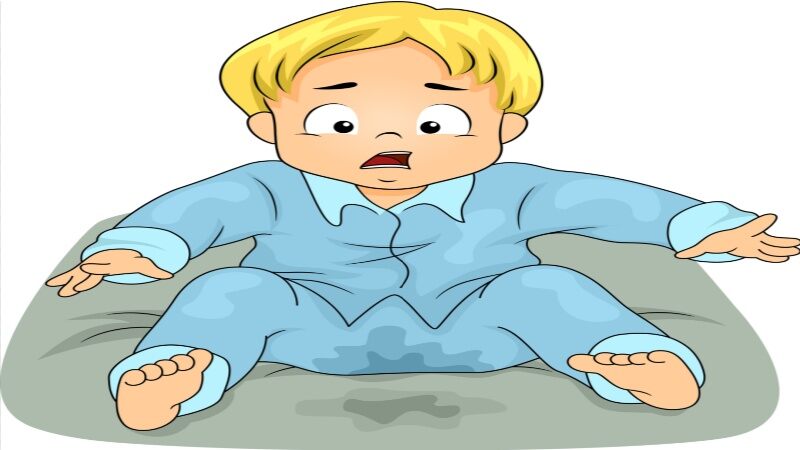
Bedwetting is the most common phenomenon among children, especially up to the age of 5. Bedwetting also known as sleep wetting or in a more scientific language nocturnal enuresis is a common occurrence and not a result of any problem in children. So the parents, who panic due to this problem of their child, need not do so as their child is no exception and this is a feature faced by 90% of the kids their age. Getting up in the middle of the night only to find wet bed sheets, wet blankets and your baby wet is almost a common feature of the families having young children. Parents should not frown at their child as all this will discontinue with time. Most children stop bed wetting when they reach the age of 5 to 6 years. It has been found that the tendency of bed wetting is found more in boys as compared to girls.
It is a myth to believe that the child is wetting the bed due to laziness. There are scientific reasons behind bedwetting, which are:
- It can be a hereditary problem. If one of the two or both the parents have faced the problem of bed wetting during their childhood, their kids are more likely to do the same and up to the same age, in most of the cases.
- There can also be physical reasons for it. Some children may have a small bladder which can be the reason for their bedwetting.
- In some children, there can be little production of ADH (Anti diuretic hormone) which can contribute to bed wetting.
- Constipation at times can also be the reason for bedwetting. When the bowel is full, it puts pressure on the bladder and as a result kids urinate on the bed.
- UTI ( urinary tract infection) can also increase the chances of bed wetting in children.
- Sometimes mental stress can also aggravate the problem of bedwetting. Children who start on with some new routine viz., going to school, shifting to a new house, witnessing parents fights or any other uninvited change that causes stress in their mind, end up in bedwetting. Though there is no scientific reasoning behind this, but many doctors and psychologists believe in this theory.
The best way to help your child overcome this problem is to follow the below mentioned measures:
- Don’t give your child too much of liquids or fluids around bed time.
- Such children should have their dinner at least 2 hours before sleeping.
- Get your child into the habit of going to the toilet before sleeping .
- If need be, setup alarms to wake up your child in the middle of the night for urination.
- If the child is young, don’t hesitate to use diapers at night, to avoid the unnecessary mess.
- Go in for the hormonal medicines as recommended by your doctor.
- Make your child sleep in warm clothes if the temperature is low. Keeping him warm and cozy reduces the chances of bed wetting
You should not hesitate to consult your doctor if the problem persists after the age of 6 years. There can be a need for hormonal medicines to increase the production of ADH. Never let the younger sibling bully your child and you as parents should also not look down upon your child as it will create low self esteem, lack of confidence and feeling of shame in your child. Let your child know that it is just a time related problem that is faced by almost all the kids and it will go on its own with time.
